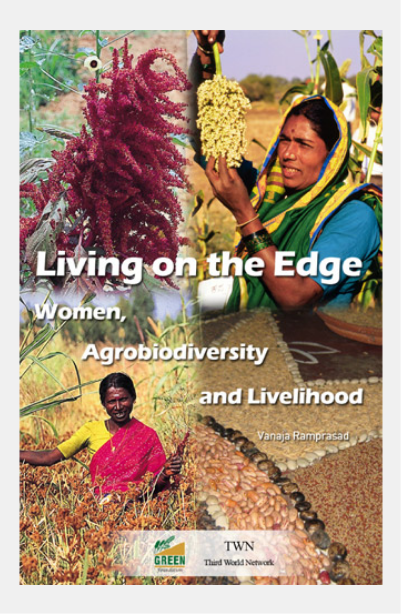
Living on the Edge
Are voices of concern and interest backed up by commitment and action? Rarely. However, Vanaja Ramprasad’s work with and for GREEN Foundation and on issues related to sustainable agriculture is one such rare case. Over the past 25 years she has diligently and persistently worked to promote sustainable agricultural practices and to highlight the multiple challenges confronting small agriculturists and the potential they represent.
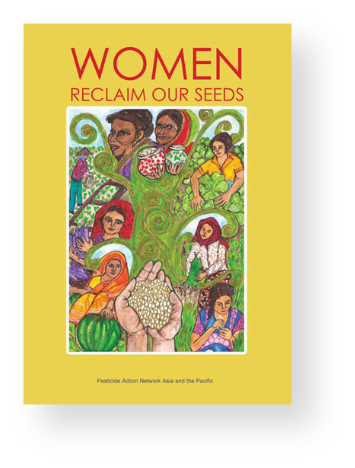
Women Reclaim Our Seeds
Are voices of concern and interest backed up by commitment and action? Rarely. However, Vanaja Ramprasad’s work with and for GREEN Foundation and on issues related to sustainable agriculture is one such rare case. Over the past 25 years she has diligently and persistently worked to promote sustainable agricultural practices…
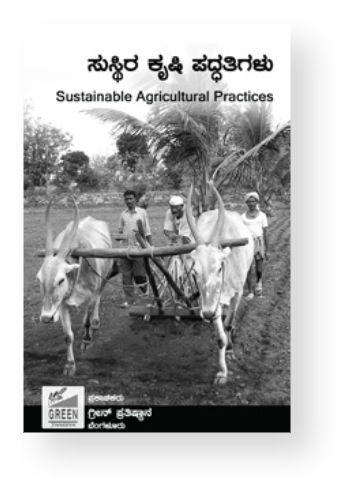
Susthira Krishi Paddhathigalu
This documents the various organic farming and sustainable practices GREEN introduces to farmers in its training sessions. It gives detailed, step-by-step procedures to various farming practices such as seed treatment and storage techniques, organic manure and herbal pesticide preparations, improved agricultural practices such as System of Rice Intensification (SRI) etc.

Beejada Butti
A compilation and varietal description of indigenous seed varieties.
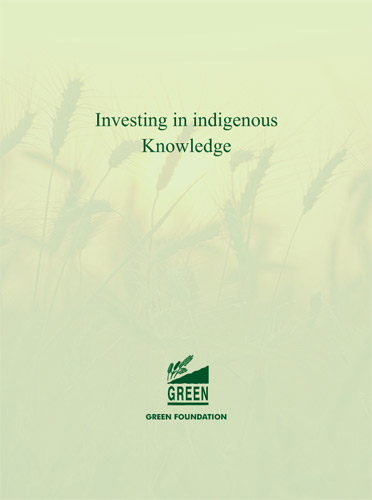
Investing in Indigenous knowledge
The concept of genetic resource conservation has undergone several changes ever since awareness thereof was raised by the Convention on Biological Diversity. GREEN (Genetic Resource, Ecology, Energy and Nutrition) Foundation as a grassroots organisation has been working among the marginalised farmers of Karnataka and Tamil Nadu…
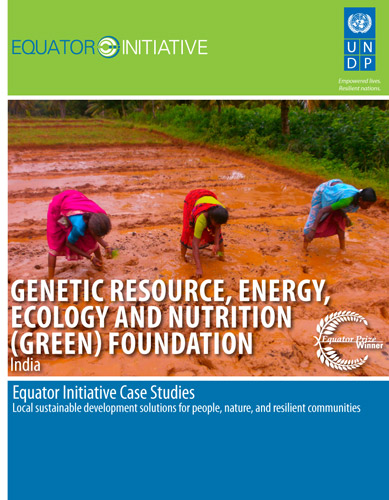
Genetic Resource, Energy, Ecology and Nutrition (GREEN) foundation
With the aim of preserving seed diversity and genetic heritage, encouraging the adoption of organic farming practices, and improving rural livelihoods, GREEN Foundation works through around 40 farmers’ groups – termed Krishi Self-Help Groups – covering 30 villages across the northern districts of...
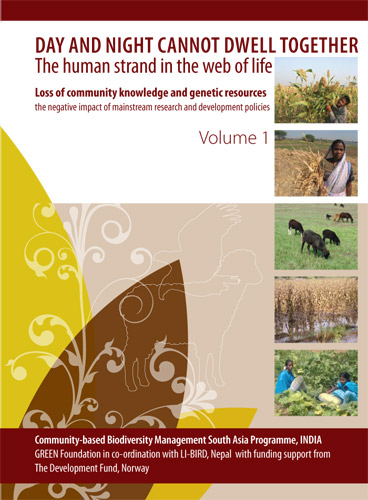
Loss of Community Knowledge and Genetic Resources
The post-industrial revolution period though very short in comparison to the million odd years of evolution of life has dramatically turned the tide towards the destruction of life. The role of the human hand in it today cannot be undermined, though hitherto many cultures…
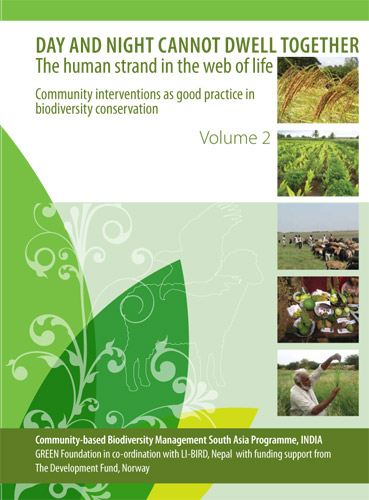
Community Interventions as Good Practice in Biodiversity Conservation
GREEN Foundation aims to work on eco-development initiatives with indigenous communities in the Nilgiri Biosphere Reserve in the Western Ghats. It has built in strategies and practices that conserve bio-diversity and address the livelihoods of the forest dependent communities.

Sustainable Agricultural Practices
This documents the various organic farming and sustainable practices GREEN introduces to farmers in its training sessions. It gives detailed, step-by-step procedures to various farming practices such as seed treatment and storage techniques, organic manure and herbal pesticide preparations, improved agricultural practices such as System of Rice Intensification (SRI) etc.
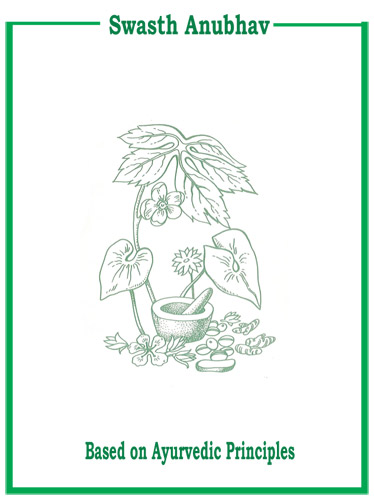
Swasth Anubhav
Swasth Anubhav is a collection of simple facts drawn from the Ayurvedic Science which was also people’s science in the past. Nature’s abundance was recognized and well integrated into the health needs and experiences of people. With modernization, we have distanced ourselves from these concepts.
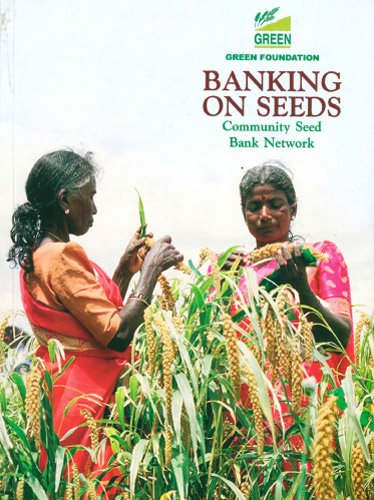
Banking on Seeds
This publication showcases GREEN’s pioneering efforts in biodiversity conservation through the initiative of Community Seed Banks (CSBs). It showcases the various strategies that have been successful in the creation and sustainability of CSBs and their role in providing farmers with free and easy access to indigenous seeds as well...
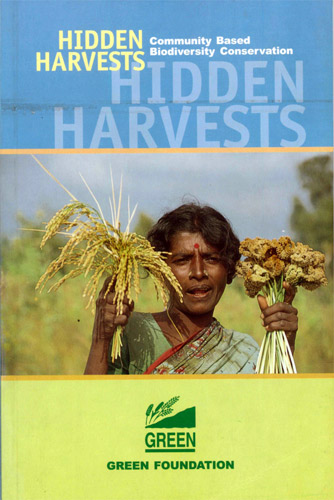
Hidden Harvests
This publication explores the links between biodiversity and its impact on food security not just of the small scale and marginal farmer, but of the world. Citing examples from GREEN’s own experience, it makes a strong case for sustainable practices that conserve biodiversity and warns against the long term consequences of adopting technologies such as those introduced by...
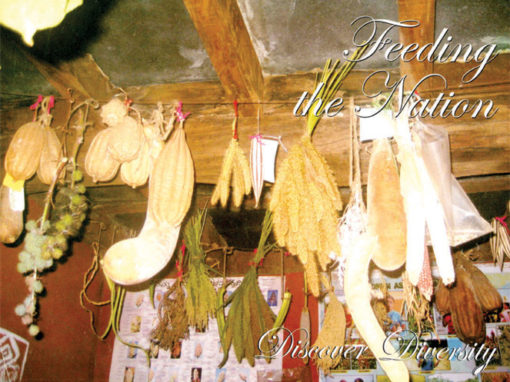
Feeding the Nation
This is a presentation of India’s agricultural biodiversity. It showcases varieties of millet and sorghum and highlights different aspects of India’s agricultural history.
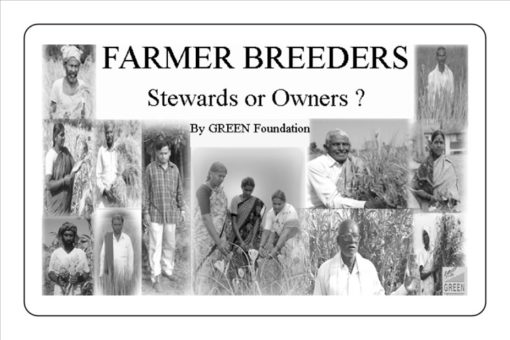
Farmer Breeders – Stewards or Owners?
Farmer Breeders – Stewards or Owners? is a glimpse of the farmers who have taken this strenuous journey of scouting, conserving, multiplying and improving the indigenous varieties.
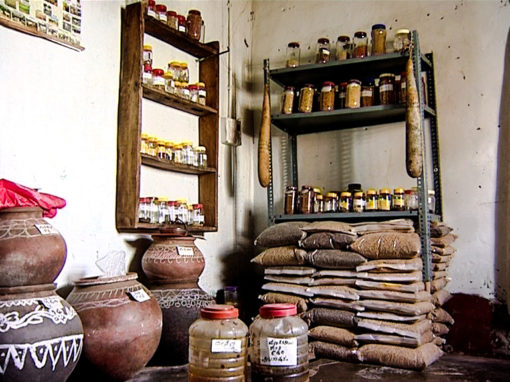
Community Seed Bank – A Policy Paper
Seed is the most valuable input in farming. It has gained the unique status as a natural resource evolved with human civilization. In other words it is a plant genetic resource, which is being inherited from the past generations of human being.
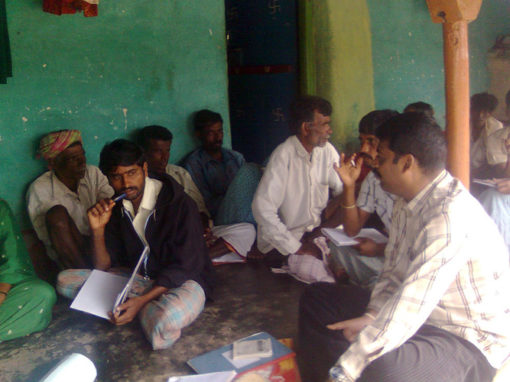
Participatory Guarantee System – A Policy Paper
There are more than one reason why the organic movement is gaining its importance in the modern era. The first and foremost reason could be the disillusionment created by the conventional agriculture – indiscriminate usage of chemicals causing air, water and soil pollution…
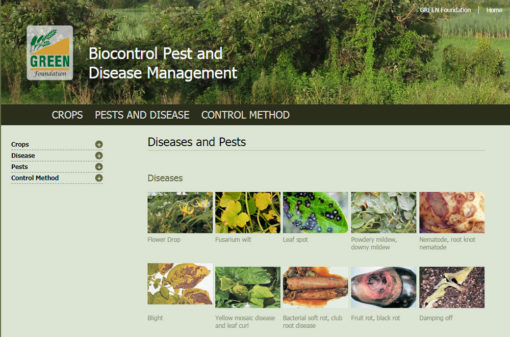
Biocontrol Pest and Disease Management
Growing vegetables provides fresh produce for the family while giving us full control over what is used in the care and maintenance while growing the vegetables. Pest control is important in vegetable gardens to keep hungry insects from feasting on the plants. However, pesticides often contain harsh toxins that can leave chemical residue on vegetables.